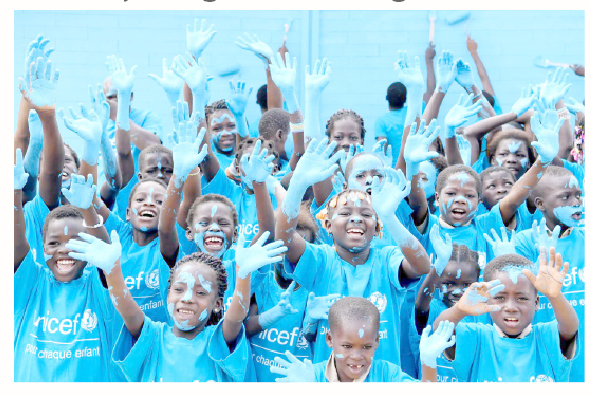The United Nations Children’s Fund (UNICEF) and the Federal Ministry of Information and National Orientation have called on journalists to uphold ethics and sensitivity when reporting issues relating to children and their rights.
Speaking at a two-day training programme organised by the Child Rights Information Bureau (CRIB) of the ministry, in collaboration with UNICEF, in Ibadan, the Chief of UNICEF Lagos Field Office, Celine Lafoucriere, urged media practitioners to ensure that reports about children are presented with dignity and respect.
Delivering a speech titled “Why Ethical Reporting of Children Matters in Nigeria”, Lafoucriere said journalists have a duty to protect the most vulnerable by ensuring that stories about children are told responsibly and without harm.
“Ethical journalism builds trust. In a world where misinformation spreads rapidly, your commitment to truth, fairness, and balance is what sets you apart. When you report responsibly, you become a trusted source of information. You help communities understand, heal, and grow,” she said.
She explained that children affected by violence, conflict, and abuse must be reported with utmost care, adding that responsible coverage helps shape how society perceives children—and how children see themselves.
“Choosing to report ethically,” she added, “helps build a nation where every child is valued, protected, and given the opportunity to thrive.”
UNICEF Communication Specialist, Susan Akila, described the workshop as both a refresher and a call to action to ensure every story about a child in Nigeria reflects truth, respect, and a firm commitment to their rights.
Also speaking, Geoffrey Njoku, a communication consultant, traced the evolution of children’s rights from international declarations to Nigeria’s domestication of the UN Convention on the Rights of the Child (CRC) through the Child’s Rights Act (CRA) of 2003.
He urged journalists to always prioritise the interests of children and respect their views, commending Lagos State for its progress in promoting child rights.
“Do not harm any child. Avoid questions, attitudes, or comments that are judgmental or insensitive, that place a child in danger or expose them to humiliation, or that reawaken pain from traumatic experiences,” he cautioned.
Representing the Permanent Secretary of the Federal Ministry of Information and National Orientation, Toye Falayi of CRIB said the training was aimed at helping journalists reflect on their ethical obligations and embrace best practices in child-focused reporting.
“When it comes to stories involving children, that responsibility becomes even greater. Every image, every word, and every frame we publish can have lasting consequences on a child’s life, safety, and future,” he stated.
A researcher, Jude Johnson, highlighted the challenges facing many Nigerian children, including early marriage, female genital cutting, rape, child trafficking, child labour, sexual exploitation, war, discrimination, disability, neglect, and displacement.
In her remarks, UNICEF Communication Officer, Blessing Ejiofor, urged all stakeholders to use their platforms to promote positive change that improves the lives of children and their families.
“As champions of human rights, we all have a responsibility to prioritise and promote the change that will improve the lives of children and their families through our channels and networks,” she said.
By Miracle Chidinma Amaechi




